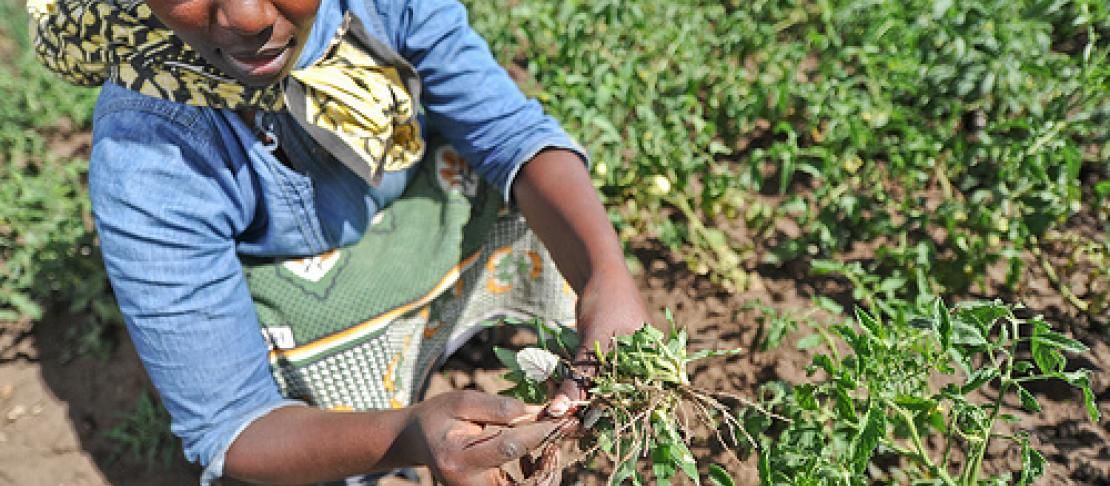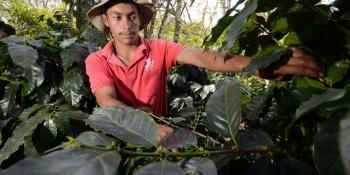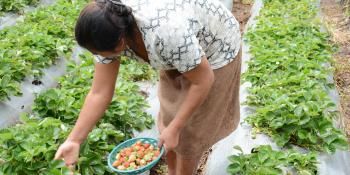Climate-proofing major development efforts in East and Southern Africa

CCAFS science is bringing insights on gender, climate information services and climate resilient agricultural practices to major development initiatives in East and Southern Africa.
Development practitioners from the International Fund for Agricultural Development’s (IFAD) East and Southern Africa team gathered October 16-18 in Nairobi to design major new IFAD-supported investments in climate change, agriculture and food security-focused programs, including the Adaptation for Smallholder Agriculture Programme, looking in particular at linkages between issues of gender, land, and climate change.
Patti Kristjanson and Jim Hansen, from the CGIAR Research Program on Climate Change, Agriculture and Food Security (CCAFS) management team, and World Agroforestry Centre (ICRAF) colleagues Frank Place and Alaba Boluwade spent time with four east and southern African country teams (Kenya, Uganda, Malawi and Mozambique).
They are sharing CCAFS knowledge, tools, lessons and strategies as these teams go forward with this huge challenge, and look to design programs that thoughtfully and effectively address these 'wicked' problems.
In particular, investments and research related to improved climate information services and climate resilient agricultural practices, and embracing 'gender transformative approaches', were discussed.
A presentation by Patti Kristjanson, leader of the CCAFS Linking Knowledge with Action theme, focused on CCAFS' innovative approach to research that addresses how best to increase the equity and participation of vulnerable groups in a changing climate so as to achieve widespread smallholder adaptation and mitigation that positively influences overall food security, poverty, health and natural resources.
For example, a traditional research question might ask, how can we increase maize production in drought prone areas? Building on this, the CCAFS research approach might ask, how can we target drought-resistant maize and accompanying management practices to vulnerable groups so we achieve the greatest impact?
James Hansen, leader of the CCAFS Climate Risk Management theme, outlined the role of climate information services in risk management from the level of the farm to the food system, and how CCAFS is harnessing the expertise of the CGIAR to reach farmers and decision makers with climate information.
After successful pilot projects in Senegal and Kenya, CCAFS is putting together the pieces to bring climate services to farmers at scale. Another project in Ethiopia is discovering how best to incorporate climate information into existing government decision-making processes.
Read more on the IFAD blog: “Linking knowledge to action” across East and Southern Africa
Learn more about CCAFS research and tools on gender.
Find out more about CCAFS work on climate information services for smallholder farmers.
Patti Kristjanson leads CCAFS research on Linking Knowledge with Action. James Hansen leads the research theme on Climate Risk Management.



